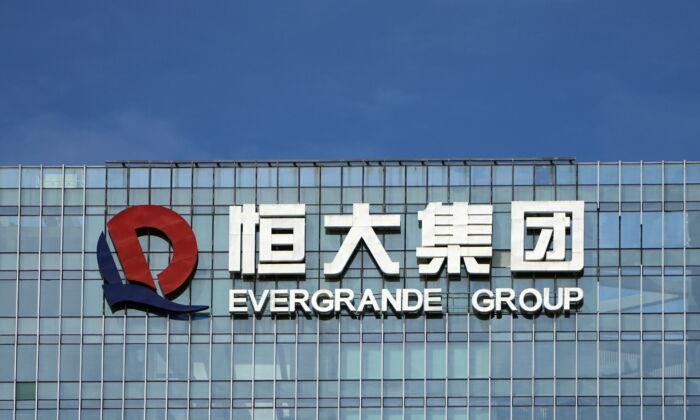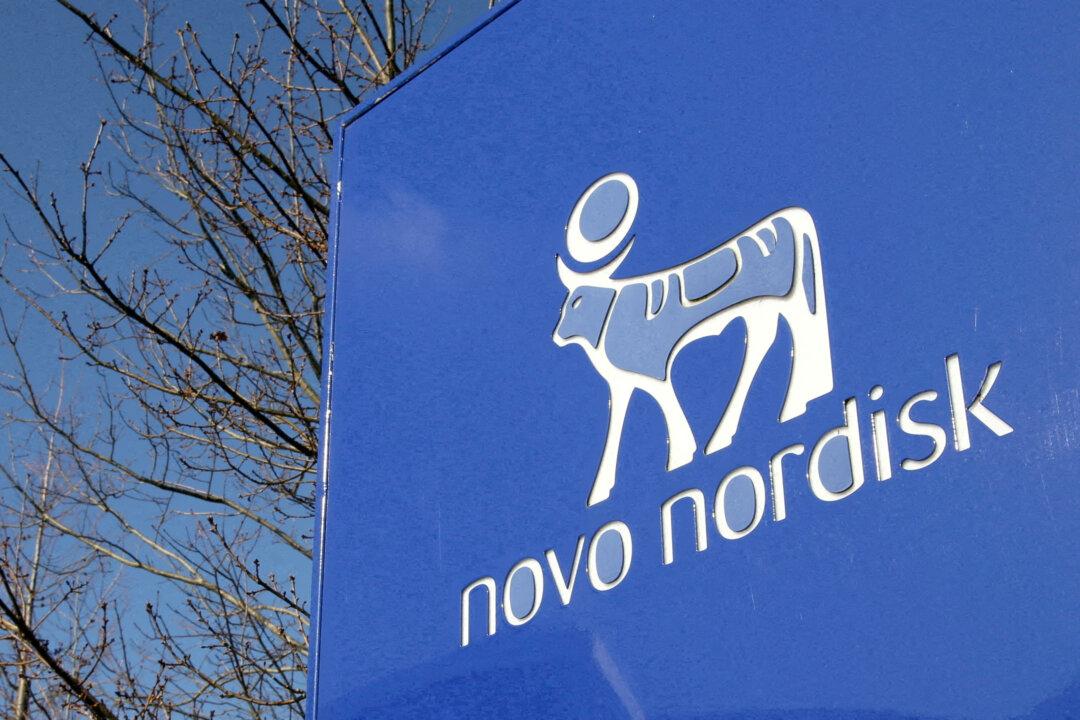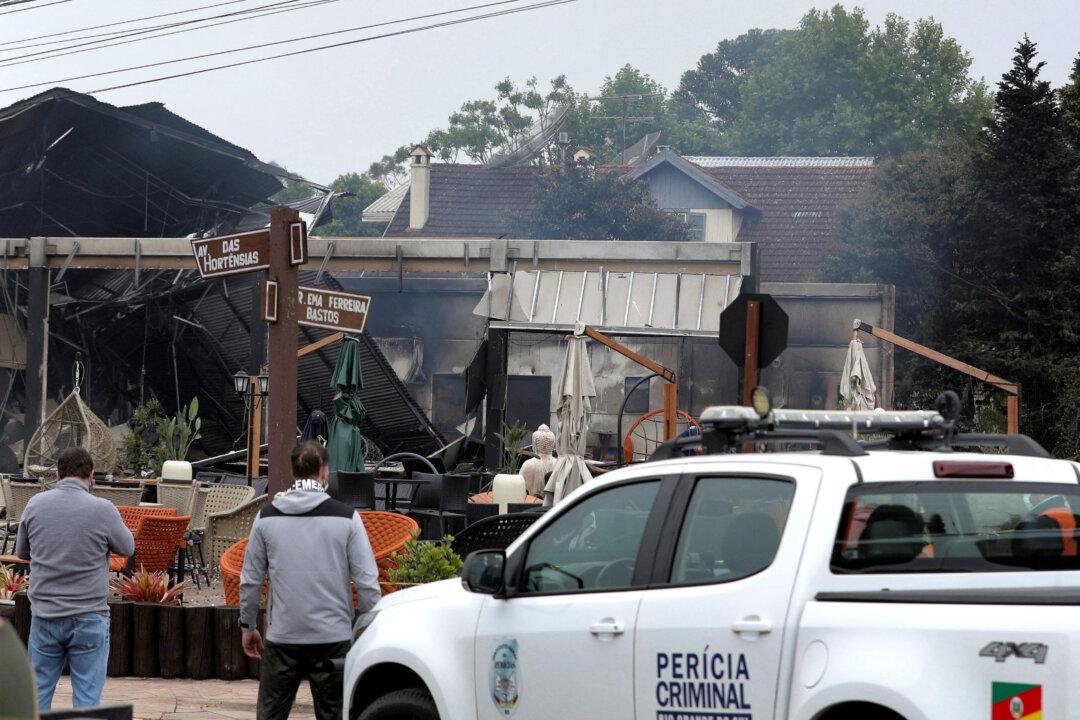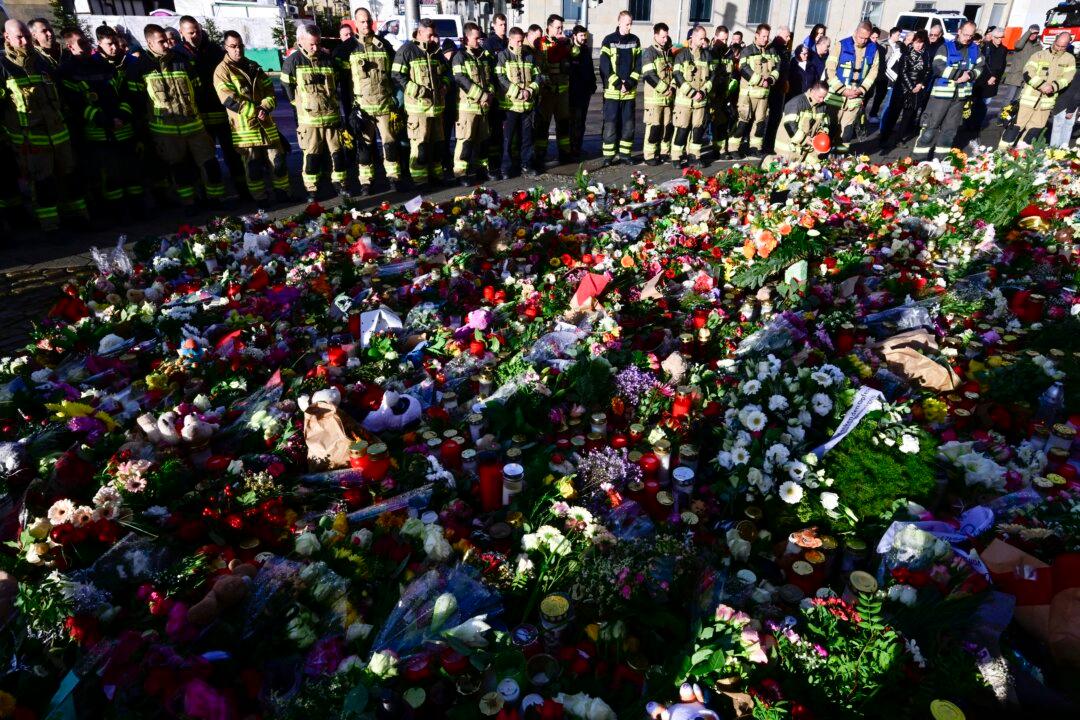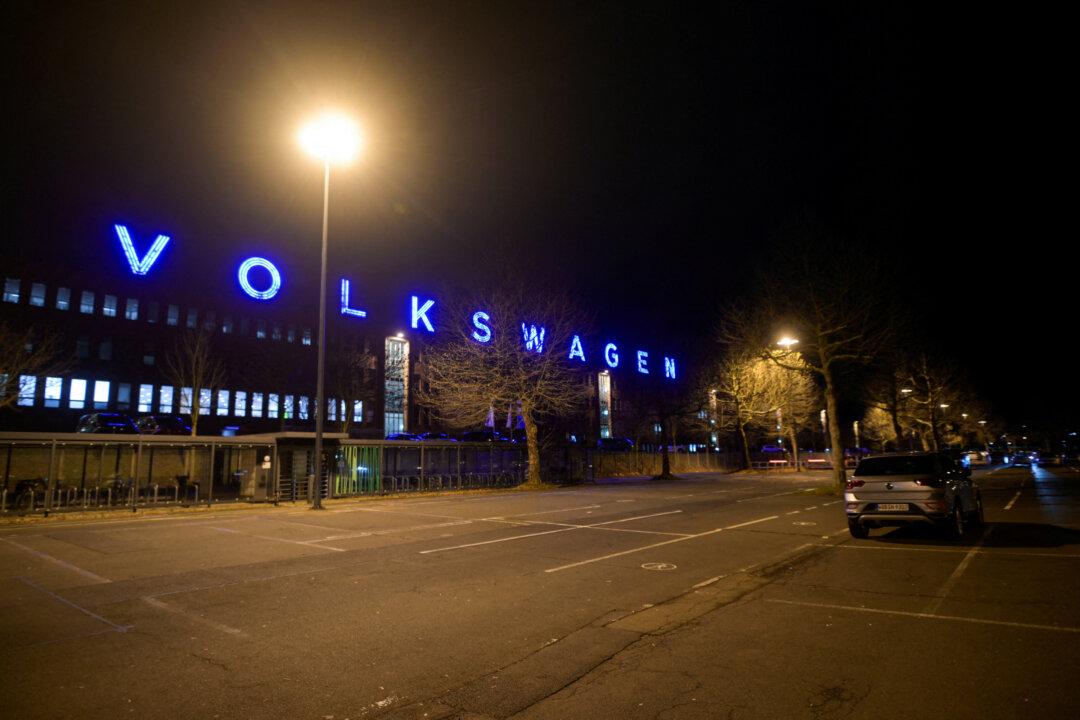HONG KONG/SHANGHAI—China Evergrande Group has secured more time to pay a defaulted bond, financial provider REDD reported on Thursday, offering rare respite to the developer even as a debt crisis in the broader property sector deepened with more defaults.
News of the three month-plus extension came a day after Evergrande scrapped a deal to sell a 50.1 percent stake, worth $2.6 billion, in a property services unit that could have eased some immediate pressure on the firm.
Evergrande was once China’s top-selling developer but is now reeling under more than $300 billion of debt, prompting government officials to seek to reassure markets that the firm’s problems won’t spin out of control.
A deepening liquidity crisis, however, continued to reverberate across China’s property sector, with more default announcements, and many companies saw their bonds slip again on Thursday after they had rallied this week.
Kaisa Group’s most imminent offshore bond, which is due on Dec. 7, fell 10 cents to about 60 cents on the dollar, 40 percent below face value, after a Hong Kong developer dumped $30 million worth of its bonds.
Kaisa was the first Chinese developer to default back in 2015 and the Evergrande crisis has put it back in the spotlight.
Citing unidentified bondholders, REDD said Evergrande had been granted a more than three-month extension to a $260-million bond, issued by Jumbo Fortune Enterprises and guaranteed by Evergrande, after agreeing to provide extra collateral.
The bond had been due to mature on Oct. 3.
A source familiar with the matter said Evergrande Chairman Hui Ka Yan had agreed to pump personal wealth into a Chinese residential project tied to the bond to ensure it gets completed, paving the way for bondholders to get their dues.
The bondholders agreed to the proposal to avoid a messy collapse of the developer or a drawn-out legal battle, the source told Reuters. Evergrande did not respond to Reuters requests for comment.
The development comes just ahead of the expiry of a 30-day grace period for Evergrande to pay $83.5 million in coupon payments for an offshore bond, at which time, if it cannot pay, China’s most indebted developer would be considered in default.
Evergrande, in an exchange filing on Wednesday, said the grace periods for the payment of the interest on its U.S. dollar-denominated bonds that were due in September and October had not expired. It did not elaborate.
It added it would continue to negotiate for the renewal or extension of its borrowings or other alternative arrangements with its creditors.
The scrapped $2.6 billion unit sale “has made it even more unlikely for it (Evergrande) to pull a rabbit out of a hat at the last minute”, said a lawyer representing some creditors, requesting anonymity as he was not authorised to speak to the media.
Contagion Risk
Statements from Evergrande peers on Thursday exacerbated investor concerns of contagion in the $5 trillion Chinese property sector that accounts for a quarter of the country’s economy by some metrics.Since the government started clamping down on corporate debt in 2017, many real estate developers turned to off-balance-sheet vehicles to borrow money and skirt regulatory scrutiny, analysts and lawyers said.
Oceanwide Holdings International Development, a unit of developer Oceanwide Holdings, said on Thursday its notes due Oct. 31, worth $134 million, had defaulted.
Modern Land China Co Ltd said it had ceased seeking consent from investors to extend the maturity date of a dollar bond due on Oct. 25, and that it planned to engage an adviser to solve its liquidity issues.
The company’s Hong Kong-listed shares were suspended from trading on Thursday, while its bonds slumped. Its 11.95 percent March 2024 bond traded down nearly 20 percent at below 21 cents, according to data provider Duration Finance.
Modern Land’s decision weighed on investors’ mood, said Clarence Tam, fixed income portfolio manager at Avenue Asset Management in Hong Kong. “The market is worried all single-B companies will choose not to pay,” he said, referring to a credit rating level.
Investor concerns were not confined to offshore markets.
A September 2023 bond from developer Aoyuan Group Co was the biggest faller among corporate bonds on the Shanghai Stock Exchange, according to exchange data, dropping 10 percent to 88.65 yuan.
Ratings agency Fitch downgraded Central China Real Estate to “B+” from “BB-” with a negative outlook on Thursday, following a similar action by Moody’s.
Fitch said China’s attempts to keep tighter risk controls for the property sector without magnifying a growth slowdown illustrated the difficult trade-offs policymakers are facing.
Deal Failure
Trading in the Hong Kong-listed shares of Evergrande and Evergrande Property Services Group Ltd resumed on Thursday after a more than two-week suspension pending the announcement of the now-failed stake sale.Evergrande closed down 12.5 percent and the services unit dropped 8 percent, while Evergrande’s electric vehicle arm eased 2 percent.
Shares in Hopson Development Holdings Ltd, which was in talks to buy the services unit stake, rose 7.6 percent.
Both sides traded blame for the deal failure, with Hopson saying Evergrande had asked it to make “substantial changes” to agreed terms. Evergrande said on Wednesday it had reason to believe Hopson had not met the “prerequisite to make a general offer,” without elaborating.
The deal is Evergrande’s second to collapse amid a scramble to raise cash. Sources told Reuters last week the $1.7 billion sale of the developer’s Hong Kong headquarters had failed.
Evergrande also said on Wednesday that, barring its sale of a stake worth $1.5 billion in Chinese lender Shengjing Bank Co, it had made no material progress in selling other assets.
